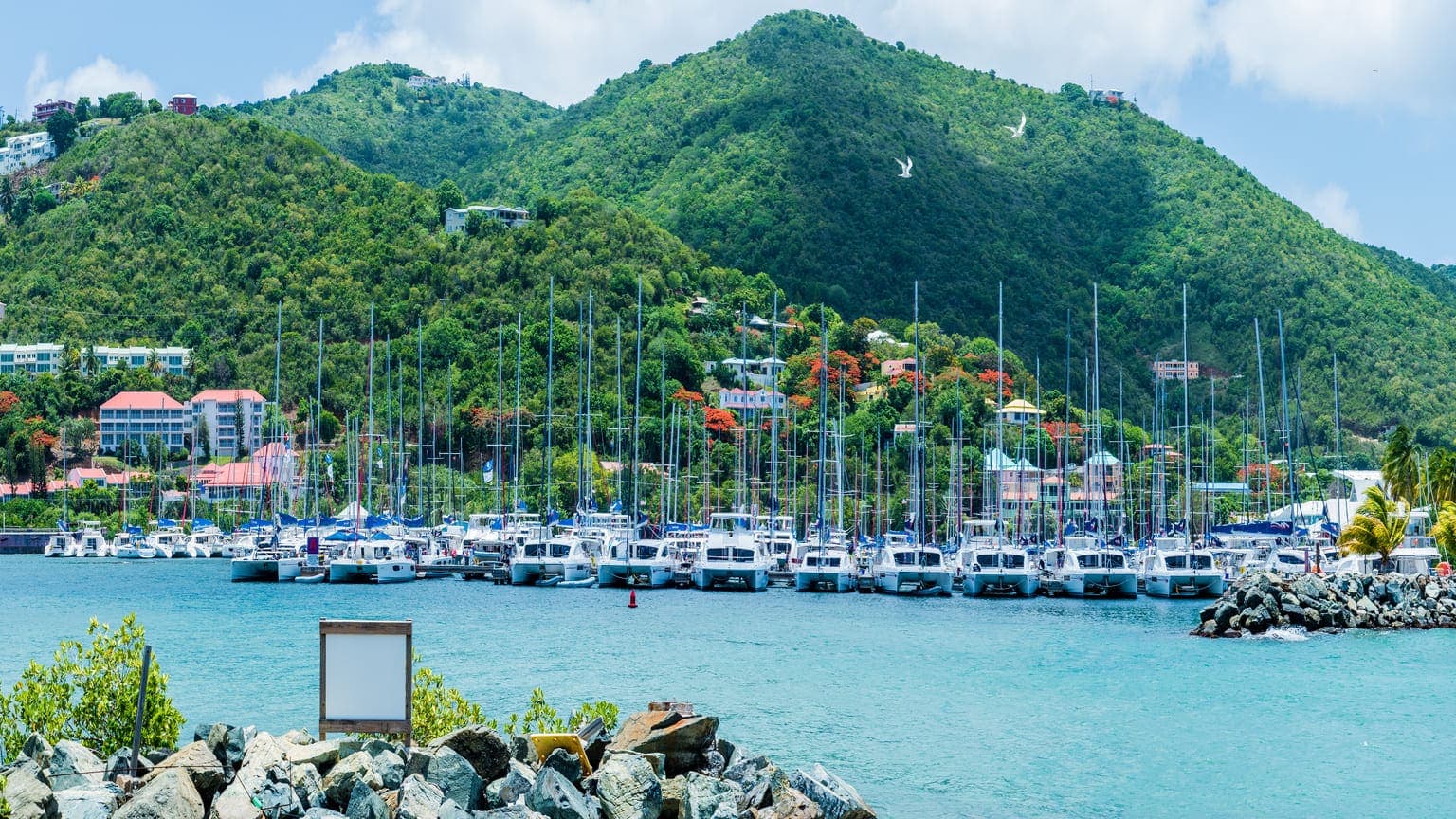Who Are Cosmopolitans and How to Become One in the Modern World
The "cosmopolitan" term comes from two Greek words: "cosmos", the universe and "polites", a citizen. Therefore, a cosmopolitan is a citizen of the world who recognizes the entire planet as their homeland rather than a single country.

Chief Development Officer at Immigrant Invest
Fact checked byAlina Mishurenko
Reviewed byVladlena Baranova

Who Are Cosmopolitans and How to Become One in the Modern World
Share:
Coming up is an insightful comparison of what a killer whale and a citizen of several countries have in common, the theory of six flags and whether it is worth obtaining a special passport of a world citizen.
What is the meaning of cosmopolitanism
In biology, cosmopolitanism refers to plants and animals whose habitat covers vast territories. For example, natural cosmopolitans include killer whales, shore swallows and nettles.
In sociology and philosophy, cosmopolitanism is called the “mindset of world citizenship, which puts the interests and values of all mankind above the interests of a separate nation and state.”
The origins of the idearnof cosmopolitanism
The Ancient world. The first person to proclaim himself a cosmopolitan was Diogenes, an ancient Greek philosopher. When asked where he was from, Diogenes replied that he was a cosmopolitan, that meant, a citizen of the world. But historians suggest that in this way Diogenes denied having any obligations to his hometown of Sinope and its inhabitants.
Ancient world
8th century BC to 6th century AC
Middle Ages
6th to 17th century
Age of the Enlightenment
End of 17th to beginning of 19th century
19th century
None
20th century
None
The concept of cosmopolitanism acquired a positive meaning a century later thanks to the Stoic philosophers. The founder of the school of stoicism Zeno created the idearnof "cosmopolis" - a world state, the citizens of which are equally considered all rational beings, regardless of origin and social status.
The Stoics also believed that the main virtue of a person is to serve others, which means to carry out political activities in his hometown or outside it as advisers and mentors.

Sinope, hometown of the first cosmopolitan philosopher Diogenes
Medieval cosmopolitanism manifested itself in plans to create a world monarchy or a theocratic state headed by the Pope. All Christians were united by faith and the principles of love for one’s neighbor.
In the 16th century, cosmopolitanism became a secular ideology. At this time, the French philosopher Guillaume Postel formed the principles of a world state, free from racial, national and religious prejudices.
During the Age of Enlightenment, international trade developed and empires appeared, like the British and Russian. During this time, people traveled more, interest in Greek ancient culture was renewed, and the ideas of humanism were spreading in society.
The German philosopher Immanuel Kant believed that cosmopolitanism would help humanity to end wars forever and achieve universal prosperity. In his treatise “Perpetual Peace: A Philosophical Sketch”, he explains that all states must unite into a single federation. Simultaneously, the countries would retain their sovereignty, but a special international organization would be engaged in trade, international cooperation and conflict resolution.

Immanuel Kant, German philosopher,
Advocated for the creation of a global civil society
Freedom is independence of the compulsory will of another, and in so far as it tends to exist with the freedom of all according to a universal law, it is the one sole original inborn right belonging to every man in virtue of his humanity.
In the 18th century, a citizen of the world was called a person who is open to everything new and free from cultural, religious and political prejudices. The city dwellers who loved to travel, established a network of international contacts and felt at home everywhere were also called cosmopolitans.
Notable Enlightenment cosmopolitans include Voltaire, Denis Diderot, David Hume and Thomas Jefferson.
19th and 20th century. German historian Dietrich Hermann Hegewisch became the founder of economic cosmopolitanism. In his view, the ideal world is a world where there are no duties and restrictions on international trade. The market, not the state, cares about the needs of the people.
Leo Tolstoy is one of the most famous proponents of cosmopolitanism at the end of the 19th century. The writer adhered to pacifist views. In his opinion, nationalism is the main cause of wars and enmity between groups.
In the 20th century, three large international organizations were created that embodied the ideas of cosmopolitanism:
The League of Nations, created in 1919 was engaged in ensuring collective security, disarmament, resolving conflicts and improving the quality of life in the world. It operated until 1946.
World Anational Association (Sennacieca Asocio Tutmonda, SAT), founded in 1921 by the writer Eugène Lanti. The members of the association wanted to destroy the very concept of a nation. It was proposed to eliminate the language barrier with the help of the artificial language Esperanto.
The United Nations started after World War II. The largest organization which still exists today.
In 1948, the Universal Declaration of Human Rights was also adopted. It recognizes the inalienable rights of any inhabitant of the Earth, regardless of his national, religious, cultural or other affiliation.

One of the UN headquarters in Geneva, Switzerland. Today the organization includes 193 states
Who is considered cosmopolitan in the 21st century
A modern cosmopolitan is a person who freely crosses the borders of different countries, cultures and political communities considering the highest values to be freedom and equality of all people inhabiting the planet.
Personal fulfillment for a cosmopolitan means working for the benefit of all humanity and not just an individual nation. Such a person seeks to help others, defends rights and freedoms and loves to learn other cultures.
Modern cosmopolitans also advocate the availability and reliability of information, economic and political freedoms. They strive to travel a lot, get a diversified education and develop their business internationally.
The Six Flags Theory for those who want to become a cosmopolitan
In 1964, investment consultant Harry Schultz coined the concept of the “perpetual tourist, ” a cosmopolitan who holds citizenship in one country, pays taxes in another, and does business in another. The connection with each new country is a flag. Schultz’s original theory consisted of three flags.
The writer William Hill expanded the theory of flags by adding three more: the flag of the country where the assets were held, the flag of the country for life, and the flag of the information security country.
The cosmopolitan’s citizenship must comply with three conditions. Firstly, the passport gives the right to visa-free travel around the world. Also, the country of citizenship has minimum tax rates and it is allowed to have multiple citizenships.
Citizenship of Malta, of the Caribbean country of Saint Kitts and Nevis or Vanuatu complies with the terms.
Residency implies the country of official residence or registration in which the cosmopolitan pays taxes. As a tax residence, it is recommended to choose a state in which there is no tax on the global income of individuals. For example, one of the Caribbean countries or Vanuatu will do.
Business. All countries where the cosmopolitan has branches of the company or provision of services are taken into account. An important criterion for a cosmopolitan business is the ability to remotely manage a company.
Assets. Countries are taken into account in which the cosmopolitan opens bank accounts to store savings and financial settlements. Wealthy people prefer to open bank accounts in Switzerland, UK, USA, Singapore and Hong Kong as they are among the most reliable banks in the world.
Countries for living include all places where cosmopolitans can spend their time comfortably. These can be beach resorts, yachts, megalopolises or cozy European villages. The ete al tourist is not tied down to any one country and chooses where and how long to live in any location.
Information Security. These are the jurisdictions in which online business resources or personal cosmopolitan sites are registered. It is important that in the chosen state there are legislative mechanisms for the protection of personal data and the rights of Internet users.
What is a world citizen passport and how to get it
In 1953, American activist Harry Davis created the World Service Authority, a non-profit organization.
Ensuring free movement around the world for cosmopolitans is one of the main tasks of the organization. For this, a special document is issued - a passport of a citizen of the world.
A world citizen passport is similar to ordinary passports that states issue to their citizens. It contains personal information about the owner, such as name, date of birth, national passport or ID card number and driver’s license number.

This is how a passport of a citizen of the world looks like. It is a machine-readable document, so you do not need to be fingerprinted to obtain it
Anyone can get a passport of a citizen of the world. All you need to do is fill out the online application form.
The applicant also pays the fees for the production and delivery of the passport. The standard period for issuing a passport is 4 months. For a fee, there is an expedited procedure for considering an application.
Costs of obtaining a passport of a citizen of the world
A world citizen passport gives the right to visa-free travel to only 6 countries: Burkina Faso, Zambia, Mauritania, Tanzania, Togo and Ecuador. You will need a visa to travel to other countries. At least 188 countries are accessible once a citizen of the world is issued a visa, the holder is then accepted with this document at border control.
It is also possible to present a passport of a citizen of the world for identification purposes. But even for such purposes, it is not accepted in all countries. For example, the United Kingdom and the United States do not recognize a world citizen passport as an official document.
In the 21st century, the passport of a citizen of the world has rather a symbolic meaning. Thus, a person confirms his belonging to the world community of cosmopolitans. Among the passport holders are famous people such as Barack Obama, Oprah Winfrey, Patrick Stewart and Edward Snowden.
Which countries’ passports are the most helpful in becoming a cosmopolitan
To gain real freedom of movement around the world and start flying their own flags, a cosmopolitan may need a second passport.
The standard path to citizenship of another country is naturalization. But for this you need to live in the chosen country for several years, as well as pass an exam on knowledge of language and history. The process of obtaining a passport can take from five to ten years depending on the country.
Some countries offer a faster route to citizenship for those who are ready to invest in the national economy. This possibility exists under the laws of Malta, five Caribbean countries and Vanuatu.
A Maltese passport is issued for special merit based on direct investment through naturalization. The investor first receives a residence permit, and after a year or three of maintaining a resident status, the investor gets the opportunity to apply for citizenship.
Applicants undergo rigorous due diligence. If the applicant is approved, he or she invests:
from €600,000 as a non-refundable contribution to the social and economic development of Malta;
€10,000 as a charitable donation;
from €16,000 per year for renting housing on the island. If an investor wants to buy a property, the value of the property must be from €700,000.
Which countries’ passports are the most helpful in becoming a cosmopolitan
When the investor receives a passport, he or she can move to Malta to live, work, do business or study. Maltese citizens enjoy social benefits such as health insurance and free treatment in the country’s hospitals. Malta’s passport also allows you to live, work and study in other EU states.
Maltese citizens travel visa-free to 185 countries, including the Schengen area, the UK, Singapore and Hong Kong. For travel to the USA, Australia and Canada, Maltese passport holders only need to obtain an electronic entry permit.
Citizenship in the Caribbean. Saint Kitts and Nevis, Grenada, Antigua and Barbuda, Dominica and Saint Lucia are Caribbean countries that issue passports to participants in public investment programs.
The minimum investment amount for Caribbean programs is from $100,000. Investments are allowed in state funds, approved real estate, business and government bonds.
Any citizens of the five Caribbean countries travel visa-free to over 140 countries. For example, in the Schengen area, they can stay up to 90 days in half a year. The UK allows visa-free travel for 180 days a year.
Caribbean passport holders can also obtain a US tourist visa for 10 years. Also, citizens of Grenada have access to the E‑2 business visa, which allows them to live, study and do business in the United States.
Vanuatu citizenship through the investor program is the fastest way to become a cosmopolitan. Participation in the program takes one month.
There is only one investment option, which is a non-refundable contribution to the National Development Fund. The minimum contribution is $130,000.
Vanuatu citizens are eligible for visa-free travel to 96 countries. It is allowed to stay in the Schengen state without a visa for up to 90 days in half a year. In Great Britain it is twice as long; up to 180 days a year.
Vanuatu has no taxes on income, inheritance, wealth and capital gains. International Business Companies (IBCs) are exempt from taxes for 20 years if they register in Vanuatu and pay an annual fee of $300.
Conditions for obtaining and opportunities for citizenship by investment
How Immigrant Invest helps to become a cosmopolitan
The choice of the country of the second citizenship depends on the investor’s tasks. For example, Maltese citizenship is better suited for moving to the European Union. And if the main goal is visa-free travel or tax optimization, then citizenship of a Caribbean country or Vanuatu may be enough.
Immigrant Invest experts help you choose the most suitable program and investment option. Lawyers will prepare documents and submit an application to the department responsible for granting citizenship in the country.
Immigrant Invest client support also includes:
selection of real estate;
joining relatives to the citizenship program;
registration of tax residency;
obtaining a driver’s license;
assistance in opening an account in a foreign bank;
renewal of the passport and replacement in case of loss.
Immigrant Invest is a licensed agent for citizenship and residence by investment programs in the EU, the Caribbean, Asia, and the Middle East. Take advantage of our global 15-year expertise — schedule a meeting with our investment programs experts.






















